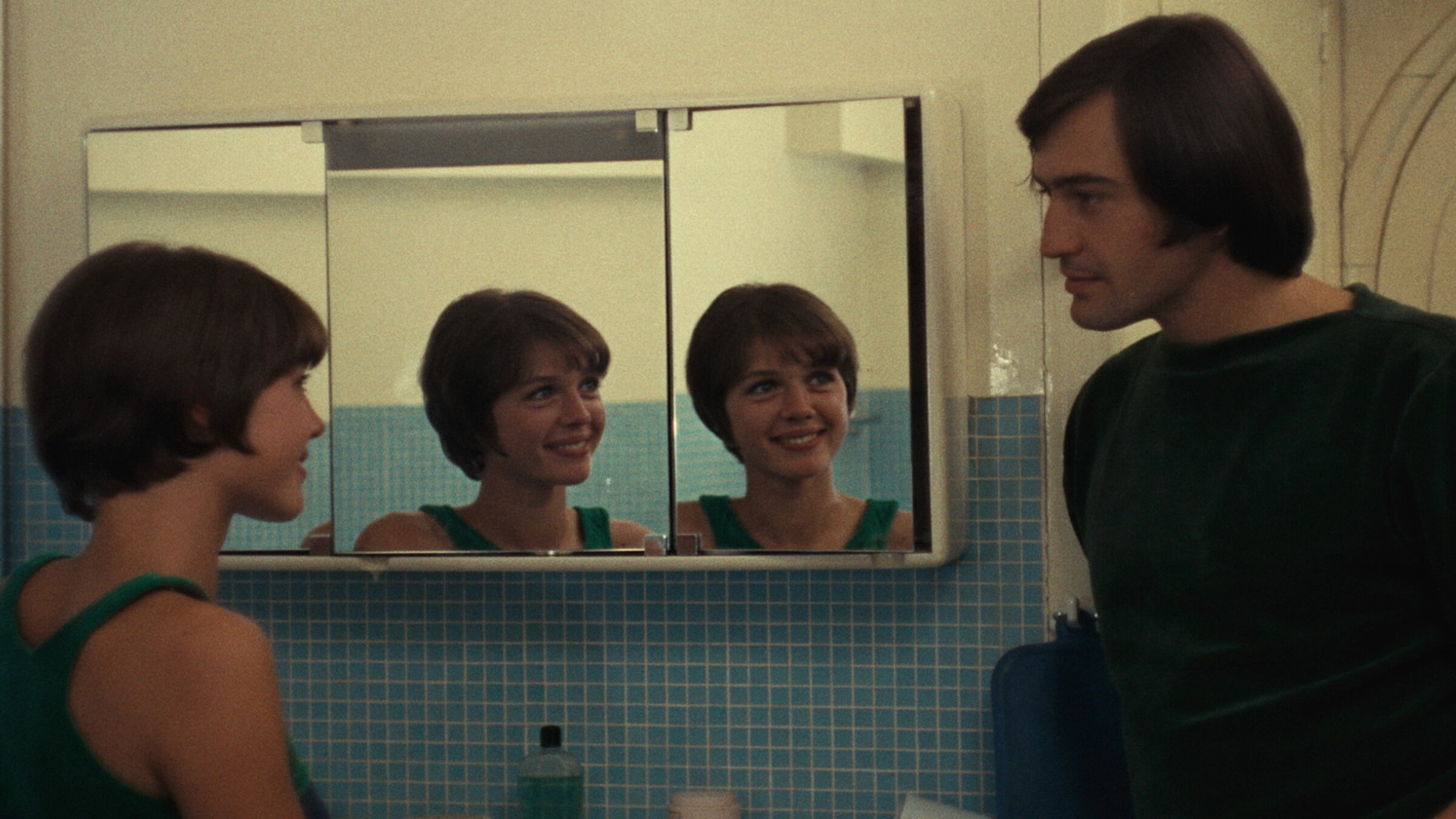MY SUMMER WITH ROHMER by Patrick McElroy
The films of Eric Rohmer capture a slow, meditative examination on the smaller moments of daily life, that are often cut out of most movies in favor of life’s key events. Many of his films often explore their main characters on vacation, with his relaxed style, and his love of nature, he perfectly captures the feeling of being on vacation, in which we try to escape from the hecticness of our work lives, into an exotic area. Not only to escape, but also to confront the internal conflicts of our lives.
Summer was the season he most often chose as his time of setting, among those films are La Collectionneuse, Claire’s Knee, Pauline at the Beach, The Green Ray, and A Summer’s Tale. In each of these films there are protagonists played by attractive actors, who live an urban life, and are having some sort of relationship problem, so they escape to an ocean, or the country to find a sense of peace. But while they’re there, what they can’t find is peace of mind. They meet one, or two people of the opposite sex, who they try to pursue, hoping to find a satisfaction that they lack in their current relationship.
Most filmmakers often have short conversations, in which characters only discuss what’s key to the plot, with Rohmer he captures the actual length of a conversation, where beyond what’s direct to the plot, the unexpected happens, where his characters reveal truths about themselves, that are also true of the human condition. An American filmmaker that he’s often compared to is John Cassavetes, but in Cassavetes the characters are angry, where with Rohmer there’s a calmness to them.
Rohmer also showed the beauty of things, whether it was the faces, or bodies of his actors, or the lush atmospheres, he captured it in a sensuous oneness, in that everything was connected. Like his fellow French New Wave filmmakers, Rohmer was a cinephile first, and a filmmaker second, putting his theories to the test with each film. One of his idols was Alfred Hitchcock, while their pacing and plots may have contrasted, like Hitchcock, Rohmer was able to take similar themes, plots, and motifs with each film, and was able to weave them into something new.
A more visible influence on his style is that of Jean Renoir, like Rohmer his films have a humanistic view of people, they also take place in either the country, or near water, and they’re about the interactions, and relationships of their characters. One of Rohmer’s favorite films, that perhaps had the most significant influence on him is Roberto Rossellini’s 1954 masterpiece Journey to Italy. François Truffaut referred to it as “the first modern film”, because films before it often played with some sort of convention, here it was two people on vacation, exploring their most internal conflicts in a place of beauty. Rohmer wouldn’t have as big an impact on 60s, and 70s, filmmakers as Godard or Truffaut did, but it would come in the 80s, and onward with the American independent movement. Since these filmmakers weren’t given much, all they had were words, so his influence can be seen on Jim Jarmusch, Richard Linklater, Neil LaBute, Noah Baumbach, the Duplass brothers, Joe Swanberg, and Greta Gerwig. Many of their films are minimalist, and dialogue driven, with characters that are experiencing some form of life crisis.
The film in recent years that felt most like Rohmer, was Luca Guadagnino’s 2017 film Call Me by Your Name, where it combines the European countryside, and water, features two attractive leads that are both handsome and beautiful, along with a summer setting, and a sensual longing. Truffaut once said "Rohmer is the best French director now. He became famous very late compared to the rest of us, but for 15 years he's been behind us all the time. He's influenced us from behind for a long time." Eventually one reaches a certain age where they realize he was the best of the French New Wave, but much like the characters in his films, it just takes time to absorb the subtleties.
Patrick McElroy is a movie writer and movie lover based in Los Angeles. Check out his other writing at: https://www.facebook.com/patrick.mcelroy.3726 or his IG: @mcelroy.patrick



